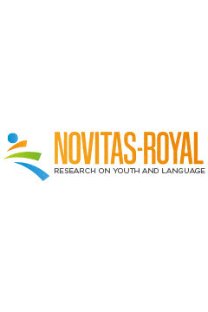The effect of motivational factors on the foreign language success of students at the Turkish military academy
Bu çalışma motivasyonun Kara Harp Okulu öğrencilerinin yabancı dil başarısına etkisinin ne yönde olduğunu tespit etmek amacıyla gerçekleştirilmiştir. Söz konusu çalışma 2008 –2009 akademik yılının birinci döneminde 50 erkek öğrenciye uygulanmıştır. Araştırmaya katılan katılımcılar askeri lise mezunları olup, yaklaşık 7 yıldır İngilizce eğitimi almaktadırlar. Araştırmada veri toplama aracı olarak Wen (1997) tarafından uygulanmış olan Motivasyon ölçeğinden yararlanılmıştır. Ölçek üç ana bölümden oluşmaktadır. Birinci bölümde katılımcılar ile ilgili çeşitli demografik verilerin toplanması amaçlanmakta, ikinci ve üçüncü bölümlerde ise motivasyon ile yabancı dil başarısı arasındaki çeşitli ilişkileri irdeleyen sorular bulunmaktadır. Toplanan veriler araştırma sonrasında SPSS 11.5 istatistik programı yardımıyla çözümlenmiştir. Verilerin analizinde frekans, ortalama, bağımsız t-testi, ANOVA ve Pearson Korelasyon analizi kullanılmıştır. Çalışma sonuçlarına göre toplam motivasyon ile Kara Harp Okulu öğrencilerinin yabancı dil başarısı arasında istatistiksel olarak anlamlı bir ilişki vardır. Fakat dil başarısı ile entegrasyon motivasyonu ve algı değeri arasında anlamlı bir ilişki tespit edilememiştir. Buna karşın düşük ve yüksek yabancı dil başarısına sahip öğrenciler arasında toplam motivasyon ve yetenek algılamaları arasında anlamlı bir fark bulunmuştur. Son olarak, katılımcıların aylık gelirleri ile toplam motivasyonları ve yabancı dil başarıları arasında anlamlı bir fark görülmemiştir. Benzer şekilde katılımcıların ebeveynlerinin İngilizce yetkinlikleri ile öğrencilerin toplam motivasyonu ve yabancı dil başarısı arasında anlamlı bir korelasyon tespit edilememiştir.
This paper aims to find out the effect of motivational factors on the foreign language success of students at the Turkish Military Academy (TMA). The study was applied to 50 3rd grade male cadets in the first semester of the 2008 – 2009 academic year. The participants of the study are military high school graduates and have been studying English for nearly seven years. As the data collection instrument, a motivational factors questionnaire adapted from Wen’s (1997) Motivational Scale was used. The questionnaire consists of three main parts. In Part I, there are questions aiming to collect some background information about the participants. In Part 2 and 3, the questions aim to collect data on the relationship between different types of motivation and the foreign language success. The collected data was analyzed by using SPSS 11.5 statistical package. Frequency, mean, independent t-test, ANOVA and Pearson Correlation analysis were used to analyze the data obtained. Based on the research findings, there is a statistically significant relationship between overall motivation and the foreign language success of the TMA cadets. However, there is no statistically significant difference between the language success and integrative motivation and valence. Also, the results of the study revealed a significant difference between low and high proficient students in terms of their overall motivation and their estimation of ability. Finally, the study showed no significant correlation between the participants’ monthly income and their overall motivation and the foreign language success. Similarly, no significant correlation was found out between the participants’ parents’ possession of English competence and the cadets’ overall motivation and language success.
___
Brown, H. D. (2007). Principles of language learning and teaching. 5th Edition New York: Pearson Longman.Deci, Edward L. & Richard M. Ryan. (2001). Need satisfaction, motivation and wellbeing in the work organizations of a former eastern bloc country: A crosscultural study of self-determination. Personality and Social Psychology Bulletin, 27, 930-942.
Dörnyei, Z. (1990). Motivation and motivating in the foreign language classroom. Modern Language Journal, 70, 273-284.
Gardner, R. C. (1985). Social psychology in second language learning: The role of attitudes and motivation. London: Edward Arnold.
Gardner, R. C. & Lambert, W. E. (1972). Attitude and motivation in second language learning. Rowley, Massachusetts: Newbury House Publishers.
Kyriacou, C. & Kobori, M. (1998). Motivation to Learn and Teach English in Slovenia. Educational Studies, 24(3), 345-351.
Kürüm, E. Y. (2007). The effect of motivational factors on the foreign language achievement of students in university education. Master’s Thesis. Hacettepe University, Ankara.
Oxford, R.L., Park-Oh, Y., Ito, S. & Sumrall, M. (1993). Japanese by satellite: Effects of motivation, language learning styles and strategies, gender, course level and previous learning experiences on Japanese language achievement. Foreign Language Annals, 26, 359-371.
Pintrich, P. (2000). The role of goal orientation in self-regulated learning, in Boekarts, M., Pintrich, P. & Zeidner, M. (Eds). Handbook of Self Regulation. Sydney: Academic Press.
Salem, M.N. (2006). The role of motivation, gender and learning strategies in EFL proficiency: Master’s Thesis. American University of Beirut.
Vroom, V. (1964). Work and motivation. Portland, OR: Wiley, John & Sons.
Yamashiro, A. & McLaughlin,J. (2001). Relationships among attitudes, motivation, anxiety and English language proficiency in Japanese college students. In S. Cornwell & P. Robinson (Eds.), Individual differences in foreign language learning: proceedings of the symposium on intelligence, aptitude and motivation. Aoyama Gakuin University: Tokyo.
- ISSN: 1307-4733
- Yayın Aralığı: Yıllık
- Başlangıç: 2007
- Yayıncı: -
Sayıdaki Diğer Makaleler
The effect of textbooks on elt trainees’ use of pragmalinguistic features
Do classroom textbooks encourage learner autonomy?
Developing collocational competence through web based concordance activities
AYŞEGÜL AMANDA JANE AUDREY YEŞİLBURSA
Mediating processes of expert interpreting: A deliberate practice approach
